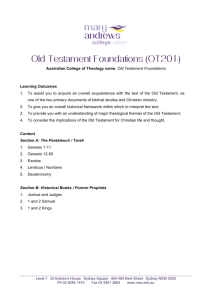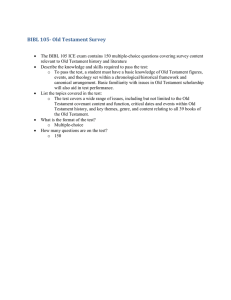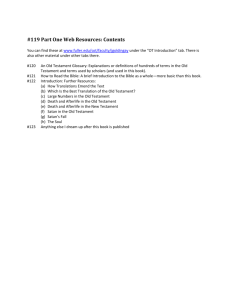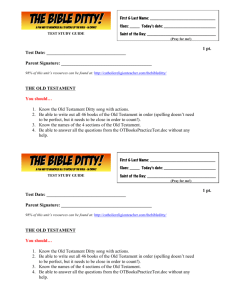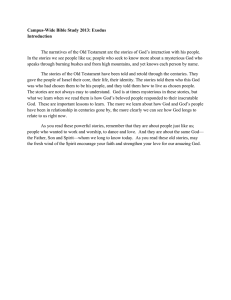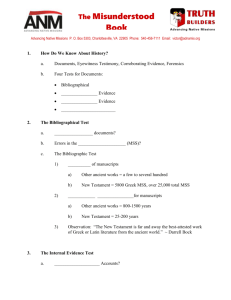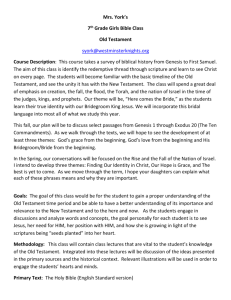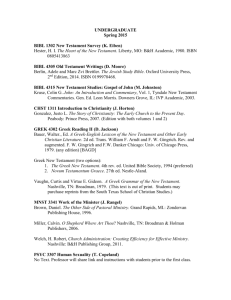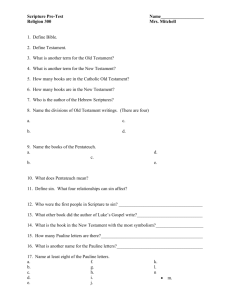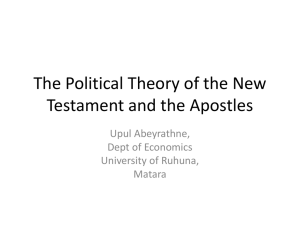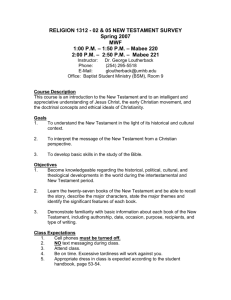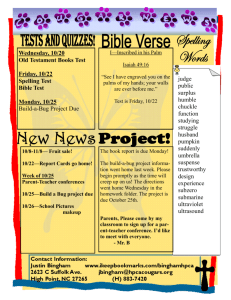Old Testament
advertisement
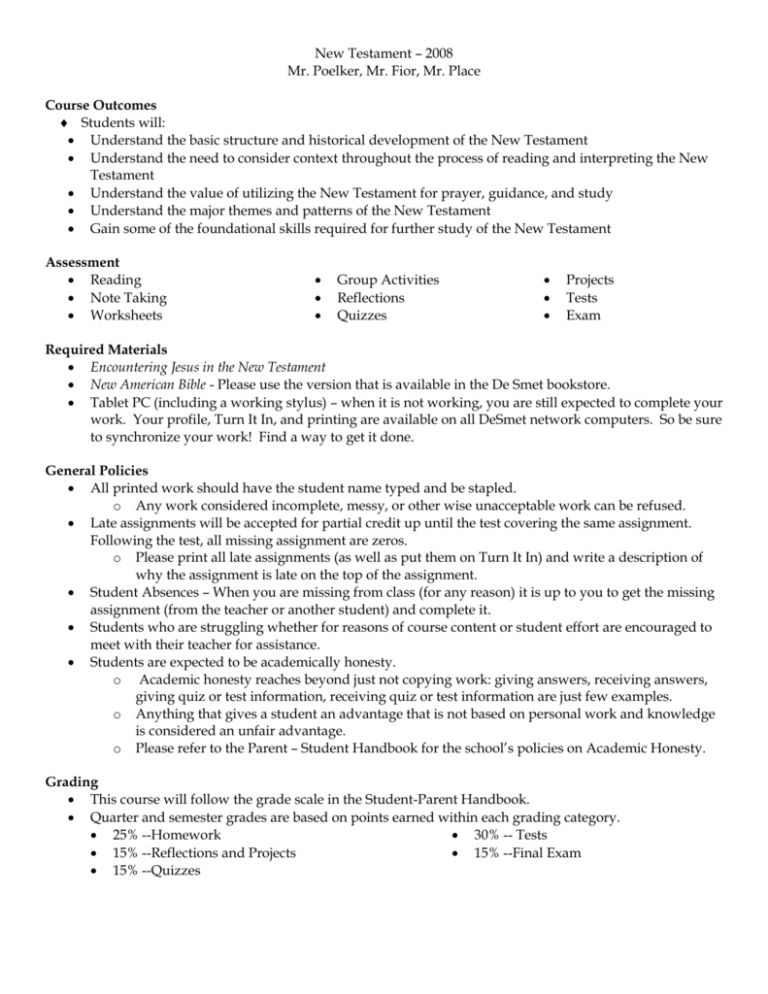
New Testament – 2008 Mr. Poelker, Mr. Fior, Mr. Place Course Outcomes Students will: Understand the basic structure and historical development of the New Testament Understand the need to consider context throughout the process of reading and interpreting the New Testament Understand the value of utilizing the New Testament for prayer, guidance, and study Understand the major themes and patterns of the New Testament Gain some of the foundational skills required for further study of the New Testament Assessment Reading Note Taking Worksheets Group Activities Reflections Quizzes Projects Tests Exam Required Materials Encountering Jesus in the New Testament New American Bible - Please use the version that is available in the De Smet bookstore. Tablet PC (including a working stylus) – when it is not working, you are still expected to complete your work. Your profile, Turn It In, and printing are available on all DeSmet network computers. So be sure to synchronize your work! Find a way to get it done. General Policies All printed work should have the student name typed and be stapled. o Any work considered incomplete, messy, or other wise unacceptable work can be refused. Late assignments will be accepted for partial credit up until the test covering the same assignment. Following the test, all missing assignment are zeros. o Please print all late assignments (as well as put them on Turn It In) and write a description of why the assignment is late on the top of the assignment. Student Absences – When you are missing from class (for any reason) it is up to you to get the missing assignment (from the teacher or another student) and complete it. Students who are struggling whether for reasons of course content or student effort are encouraged to meet with their teacher for assistance. Students are expected to be academically honesty. o Academic honesty reaches beyond just not copying work: giving answers, receiving answers, giving quiz or test information, receiving quiz or test information are just few examples. o Anything that gives a student an advantage that is not based on personal work and knowledge is considered an unfair advantage. o Please refer to the Parent – Student Handbook for the school’s policies on Academic Honesty. Grading This course will follow the grade scale in the Student-Parent Handbook. Quarter and semester grades are based on points earned within each grading category. 25% --Homework 30% -- Tests 15% --Reflections and Projects 15% --Final Exam 15% --Quizzes
